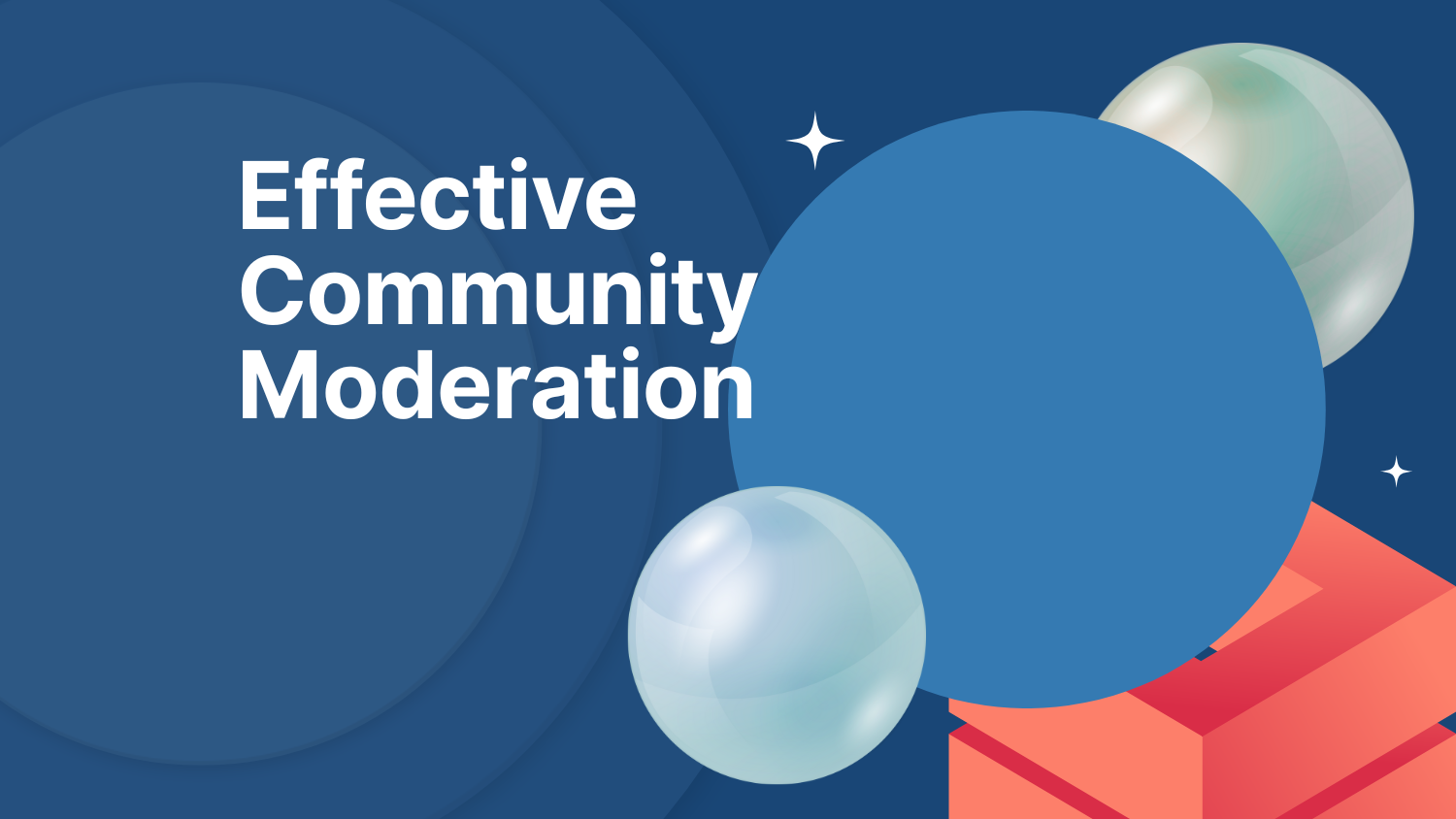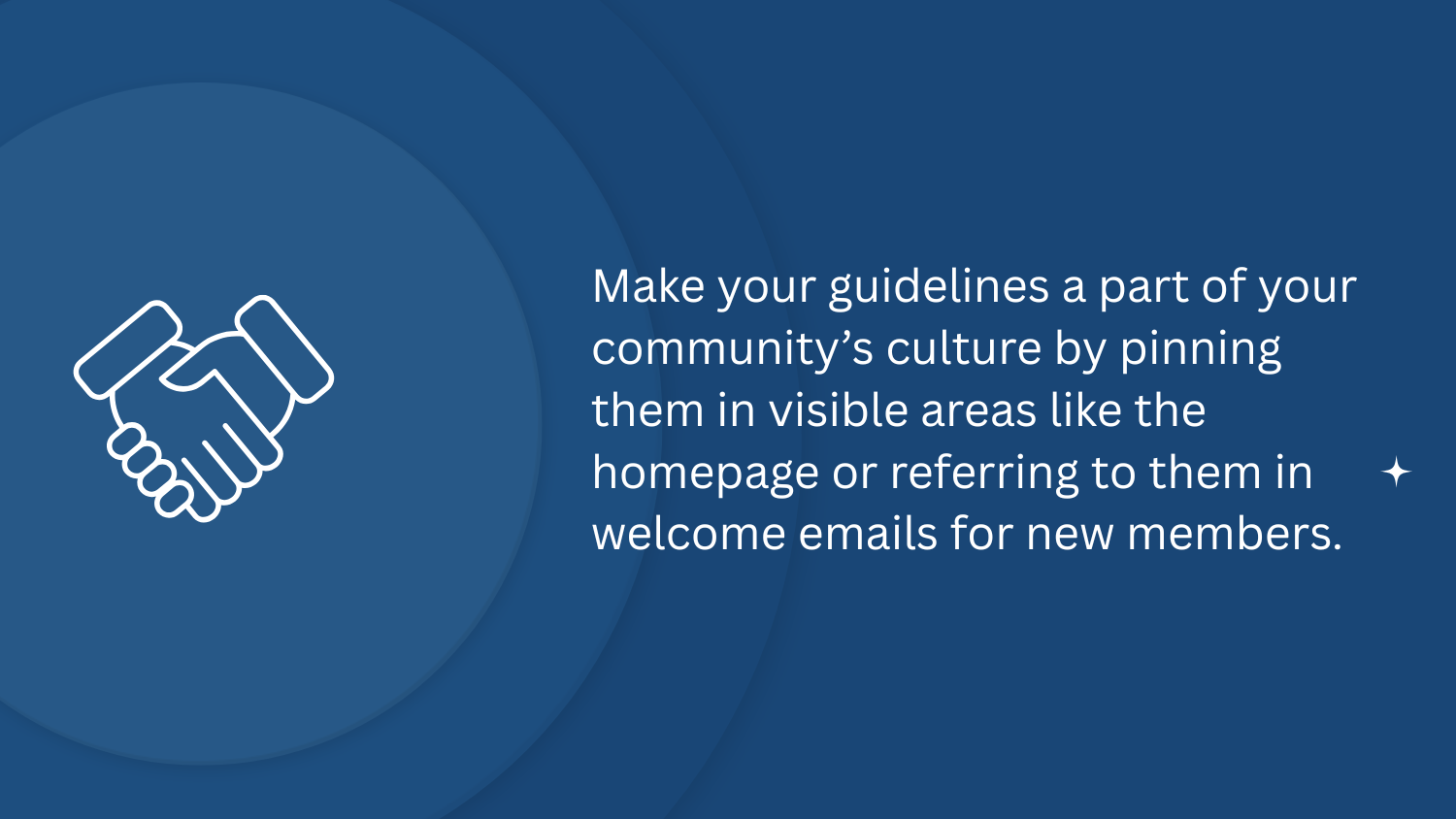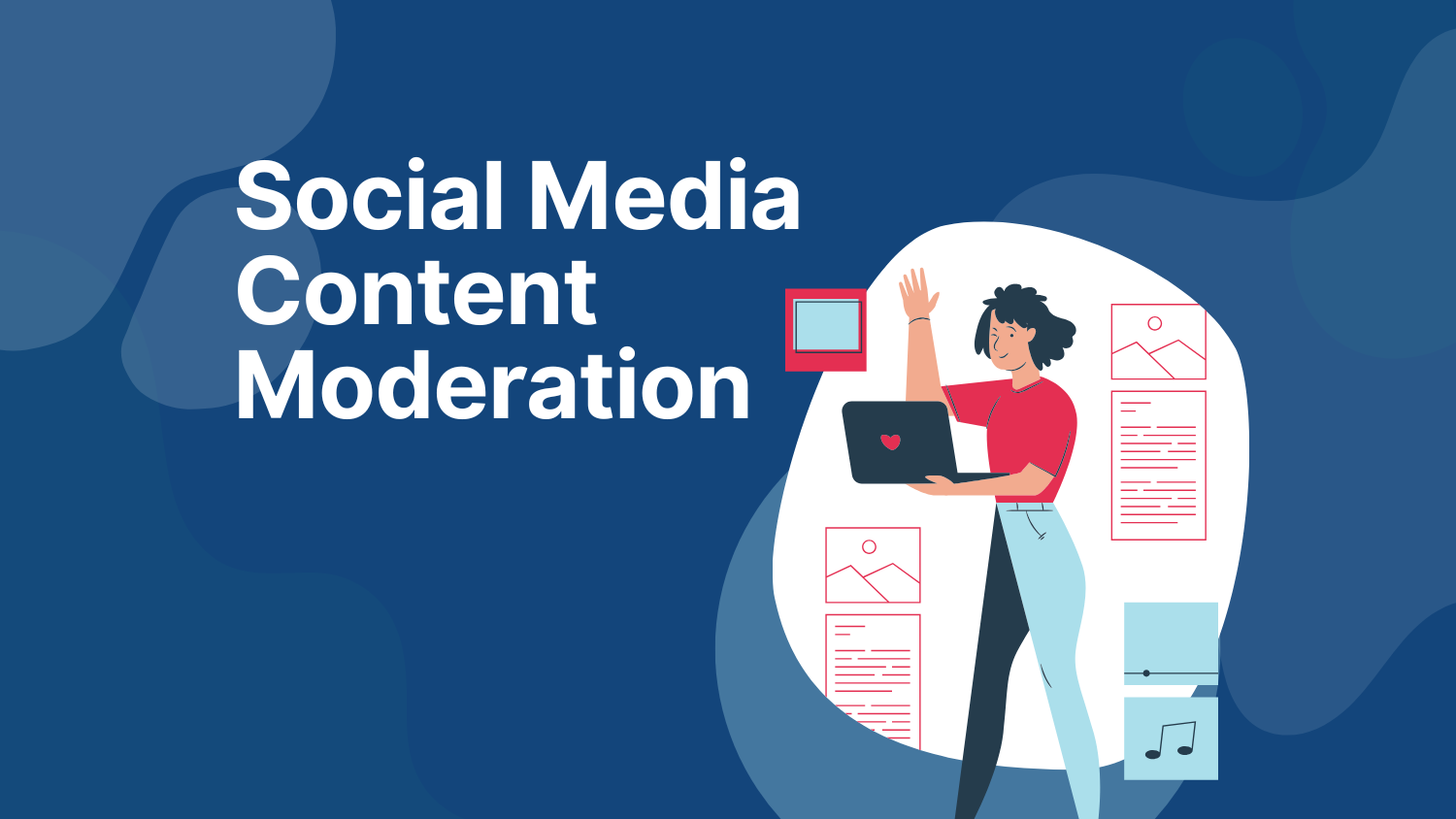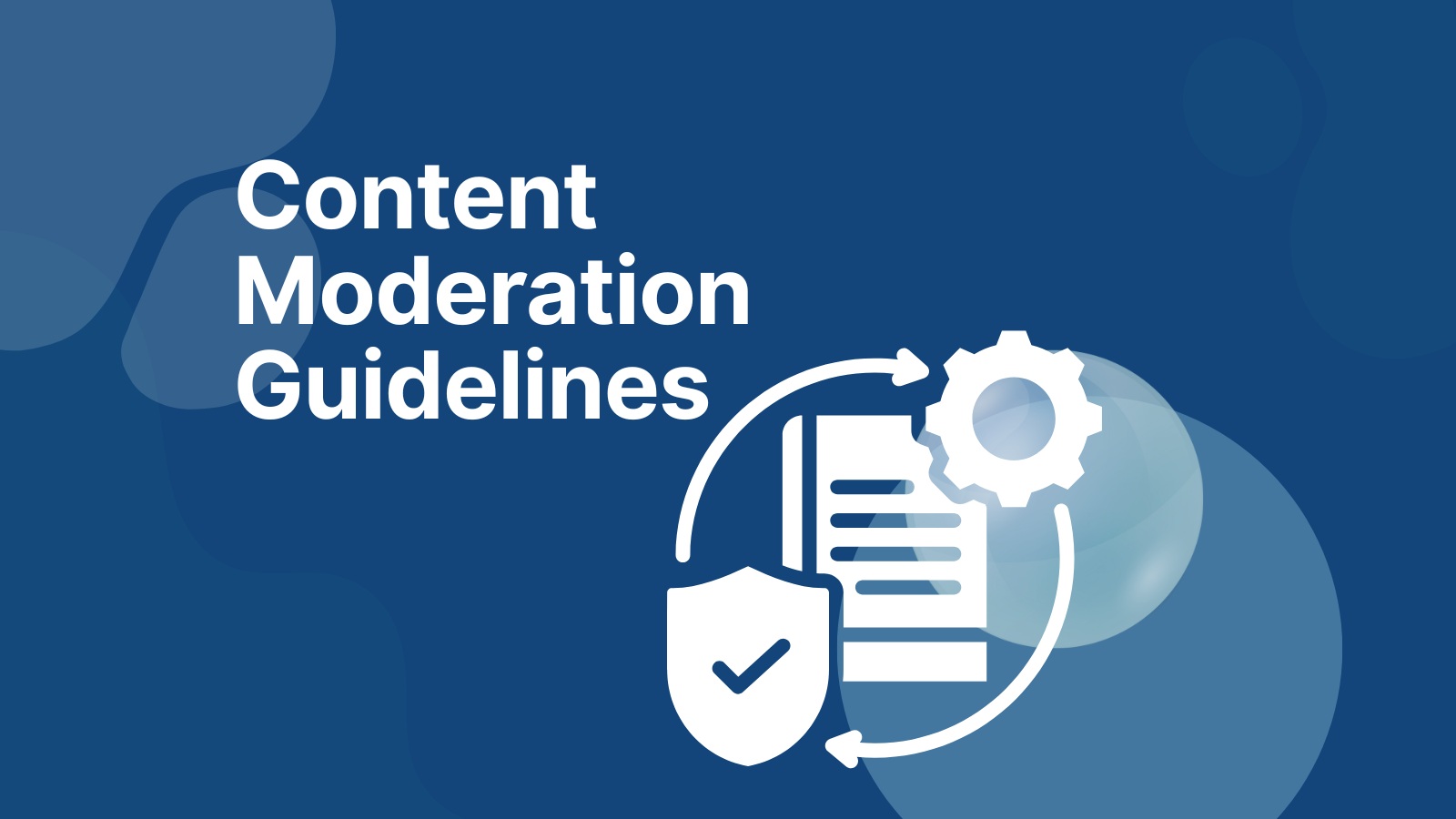7 Essential Best Practices for Effective Online Community Moderation

In the modern world, online communities have become essential spaces for communication, connection, and brand-building. These communities, whether on social media, forums, or niche networks, allow individuals and brands to interact meaningfully. However, without proper moderation, they can quickly descend into chaos, with harmful content like spam, harassment, hate speech, and misinformation spreading rapidly. This is where effective moderation becomes crucial to maintain a thriving and healthy community.
Effective moderation helps maintain a space where people feel safe, respected, and engaged. It ensures that interactions are positive, fosters a supportive environment, and protects the platform’s reputation. In this article, we will explore seven essential best practices for moderating your online community successfully.
What Is Community Moderation?
Community moderation is the process of overseeing the activity within an online community to ensure it remains a safe and welcoming space for all members. It involves monitoring user-generated content, enforcing community guidelines, and addressing inappropriate behavior to create a space conducive to positive and respectful interaction.
Community moderators, whether they are volunteers, employees, or AI-powered tools, work to maintain the integrity of the community by:
- Enforcing Guidelines: Ensuring that content shared by users aligns with the community’s values, guidelines, and legal requirements.
- Handling Conflicts: Addressing disputes, flagging inappropriate content, and intervening when necessary to de-escalate issues.
- Encouraging Positive Interaction: Promoting respectful conversations and engagement, while also protecting members from abuse or harassment.
- Managing User-generated Content: Moderating comments, posts, images, videos, and messages to remove or flag harmful material before it impacts the community.
There are several methods for implementing community moderation, and they can vary depending on the size and purpose of the community. These methods include pre-moderation (where content is reviewed before it’s published), post-moderation (where content is reviewed after publishing), reactive moderation (where users report inappropriate content), and automated moderation (where AI tools are used to scan content).
Best Practices for Effective Community Moderation

1. Create Clear, Simple Guidelines and Enforce Them Consistently
Clear and simple guidelines form the foundation of any successful community. These rules should outline the community’s purpose, acceptable behavior, and prohibited content. For example, specify that hate speech, personal attacks, spamming, and harassment will not be tolerated. It’s essential that these guidelines are not just visible but understood by all members. This means making them easily accessible and regularly referring to them to keep them top of mind.
The most important aspect of guidelines is consistency. Enforcing these rules fairly and consistently builds trust among community members. They need to know that when they report a violation, it will be taken seriously and dealt with swiftly. Ambiguity can lead to frustration, so be clear about the consequences for breaking the rules, whether it’s a warning, a temporary ban, or permanent removal from the community.
Tip: Make your guidelines a part of your community’s culture by pinning them in visible areas like the homepage or referring to them in welcome emails for new members. Consistent reference to the rules helps set the tone for a respectful environment.
2. Empower Your Community to Self-Moderate
One of the best ways to foster a positive, safe environment is by actively involving your community members in the moderation process. Empowering them to report inappropriate behavior and content helps catch issues before they become significant problems. It also fosters a sense of ownership over the space, making members feel more invested in keeping the community safe.
Self-moderation is a powerful tool because it taps into the collective awareness of the community. When members know they have a voice in maintaining the health of the space, they’re more likely to engage positively. Ensure that your reporting system is straightforward, accessible, and efficient for everyone involved.
Tip: Reward those who take the time to report inappropriate content. Acknowledge their contributions through public shoutouts or recognition in community discussions. This not only motivates the individual but encourages others to participate as well, building a collaborative moderation culture.
3. Use Automation for Scalability
As your community grows, manual moderation becomes a daunting task. This is where automated moderation, powered by a social media moderation tool, can make a significant difference. Automation allows you to scan and flag harmful content, such as offensive language, spam, or inappropriate images, instantly, 24/7. Automation tools work faster than human moderators and can identify violations in real-time, preventing harmful content from reaching the broader community.
Automation doesn’t replace human moderators but rather complements them. AI-powered systems are ideal for handling repetitive, straightforward tasks like spam removal or flagging inappropriate language. This frees up your moderators to focus on more complex situations, such as mediating conflicts or dealing with ambiguous content violations.
Tip: Use automated tools to handle repetitive tasks that don’t require nuanced judgment. This not only saves time but also allows human moderators to step in where their expertise is most needed, during delicate situations or in cases where human empathy is essential.
4. Train and Support Your Moderators
Moderators are the heart of any online community. They ensure the rules are followed, handle conflicts, and maintain a welcoming atmosphere. However, moderation can be emotionally taxing, especially when dealing with abusive content or heated disputes. To equip your moderators for success, regular training is essential. They should be familiar with your community guidelines, conflict resolution techniques, and the tools at their disposal.
Support is just as important as training. Encourage a culture of communication and camaraderie among moderators. This could mean having a space where moderators can share experiences, seek advice, and discuss strategies for dealing with tough situations. The more supported and prepared they feel, the more effectively they will moderate the community.
Tip: Provide moderators with regular feedback and create opportunities for them to connect and share best practices. A well-trained and supported team is more confident, less stressed, and more likely to make sound decisions.
5. Encourage Positive Engagement Through Rewards
Effective moderation isn’t just about dealing with bad behavior; it’s also about creating an environment where positive behavior is recognized and encouraged. Rewarding good behavior, such as helping others, offering thoughtful feedback, or creating meaningful content, motivates others to follow suit. Recognizing members who contribute to the community in meaningful ways fosters a positive culture and encourages others to participate more constructively.
Recognition doesn’t always need to be grand. It can range from simple shoutouts in the community to badges or even special perks for highly engaged members. The key is to make sure that people feel valued for their positive contributions. This creates an environment where respect and kindness are not only encouraged but celebrated.
Tip: Run monthly “best contributor” challenges or feature active members on community pages. The focus should be on recognizing the quality of participation, not just the quantity. Acknowledge members who contribute thoughtfully, solve problems, or engage with others in a respectful manner.
6. Be Transparent and Communicate Openly
Transparency is crucial to maintaining trust within your community. Members should feel like they are part of the process and understand why actions are taken when violations occur. If users see that moderation actions are being applied fairly and consistently, they are more likely to trust the process and feel comfortable participating. Open communication about the rules, moderation methods, and any changes to policies is essential.
Regularly communicate updates about the community’s health, and inform members about any changes in guidelines or moderation strategies. This helps reduce frustration and keeps the community engaged. Transparency also means being open about challenges and the actions being taken to address them, which can lead to a more informed and understanding membership.
Tip: Host regular community calls, post updates in newsletters, or use the community forum to share insights on the moderation process. When members feel informed, they are more likely to be understanding and cooperative, even when their content is flagged or removed.
7. Leverage Data and Analytics for Continuous Improvement
Data and analytics are invaluable tools for improving moderation efforts. By tracking user behavior, you can identify patterns that indicate potential issues, such as an increase in negative behavior or spikes in certain types of content violations. Tools that provide insights into user engagement, content trends, and moderation effectiveness can help you make informed decisions about where to focus your efforts.
Regular analysis allows you to adapt and evolve your strategies. By recognizing trends early, you can address problems before they grow, ensuring that your community remains healthy and vibrant. Data can also highlight gaps in content guidelines or moderation practices, helping you refine and improve your approach.
Tip: Review data regularly to understand the dynamics of your community. If certain topics, keywords, or behaviors repeatedly lead to problems, consider adjusting your guidelines or increasing moderation efforts in those areas to prevent issues from becoming widespread.
Why Is Community Moderation Important?
Proper community moderation is essential for several reasons:
1. Protecting Users from Harm
Online communities can be breeding grounds for harmful content such as hate speech, cyberbullying, spam, or misinformation. Without effective moderation, these issues can spread quickly, negatively impacting users’ experiences and even leading to real-world harm. Moderation helps prevent exposure to such content and ensures that members can engage in a safe and supportive environment.
2. Building Trust and Engagement
Trust is the foundation of any successful online community. When users know that harmful content will be swiftly dealt with, they are more likely to participate in discussions, share their thoughts, and engage with others. Strong moderation practices help foster a positive, supportive, and respectful environment, which in turn encourages greater participation and loyalty.
3. Upholding Brand Reputation
For businesses, online communities are not just a way to connect with their audience; they are a reflection of the brand’s values and reputation. If a platform allows offensive or harmful content to flourish, it risks damaging its brand image, driving away users, and potentially losing business. Moderation helps ensure that all interactions align with brand values and comply with legal regulations, thereby protecting the platform’s integrity and image.
4. Legal Compliance and Risk Mitigation
There are many laws governing online content, from child protection laws to data privacy regulations. Community moderation is essential for ensuring platforms comply with these laws. For instance, platforms like YouTube and Facebook must comply with regulations such as the General Data Protection Regulation (GDPR) in Europe and the Children’s Online Privacy Protection Act (COPPA) in the U.S. Effective moderation helps prevent violations and the legal risks that come with them.
5. Reducing Legal and Brand Risks
If harmful or illegal content is allowed to thrive, the platform could face legal consequences. The potential for lawsuits, fines, or loss of trust from users and advertisers is real. With proactive community moderation, businesses can significantly reduce the risk of legal issues and protect their brand from negative publicity.
How Utopia AI Moderator Helps in Community Moderation
Utopia AI Moderator is an AI-powered tool that offers advanced content moderation for every type of content, text, images, and audio. Unlike traditional AI models, Utopia AI Moderator learns from your platform’s unique guidelines and rules, providing 99.99% accuracy in detecting harmful content. It is customizable and can adapt to new content moderation policies with just a few clicks.
Benefits of Utopia AI Moderator:
- Real-Time Moderation: Detect and remove harmful content as it appears, ensuring a safer, more engaging community experience.
- Language-Agnostic: Utopia AI Moderator can process and moderate content in any language, making it ideal for global communities.
- Scalability: Whether you have hundreds or millions of users, Utopia AI Moderator can handle high volumes of content without compromising on accuracy or efficiency.
- Ease of Integration: Utopia AI integrates seamlessly with your existing platform in just a few days, requiring minimal effort from your IT team.
- Customizable: The AI tool is fully adaptable to your community’s specific guidelines, learning from moderator decisions and updating itself as necessary.
Conclusion
Effective online community moderation is the cornerstone of any thriving, safe, and engaging platform. It’s not just about enforcing rules; it’s about creating a space where members feel respected, valued, and motivated to contribute positively. By clearly defining and consistently enforcing community guidelines, encouraging healthy interactions, and fostering a supportive environment, you can cultivate a community that reflects your brand’s values and goals.
Moderation isn’t just a reactive process; it’s an ongoing effort that requires continuous attention, the right tools, and a proactive mindset. Whether you’re empowering your community to self-moderate or using technology to streamline repetitive tasks, investing in strong moderation practices is essential. These efforts don’t just save time; they build trust with your users, increase engagement, and create a safer, more inclusive online space for everyone involved.
A well-moderated community doesn’t just keep the peace; it strengthens relationships, boosts participation, and ultimately helps your platform grow into a vibrant, positive space that members want to be part of. When moderation is done right, the results are clear: stronger engagement, improved member satisfaction, and a healthier, more supportive community environment.
Want to learn more?
Check out our case studies or contact us if you have questions or want a demo.















